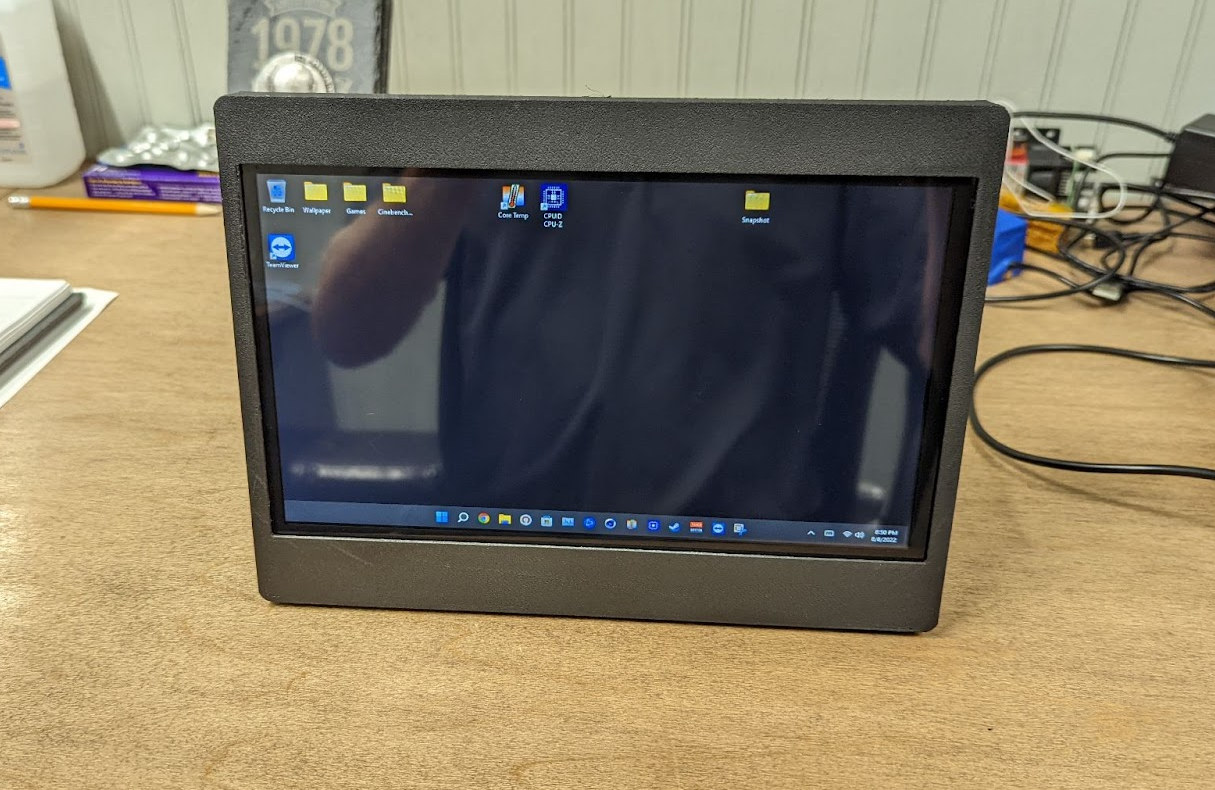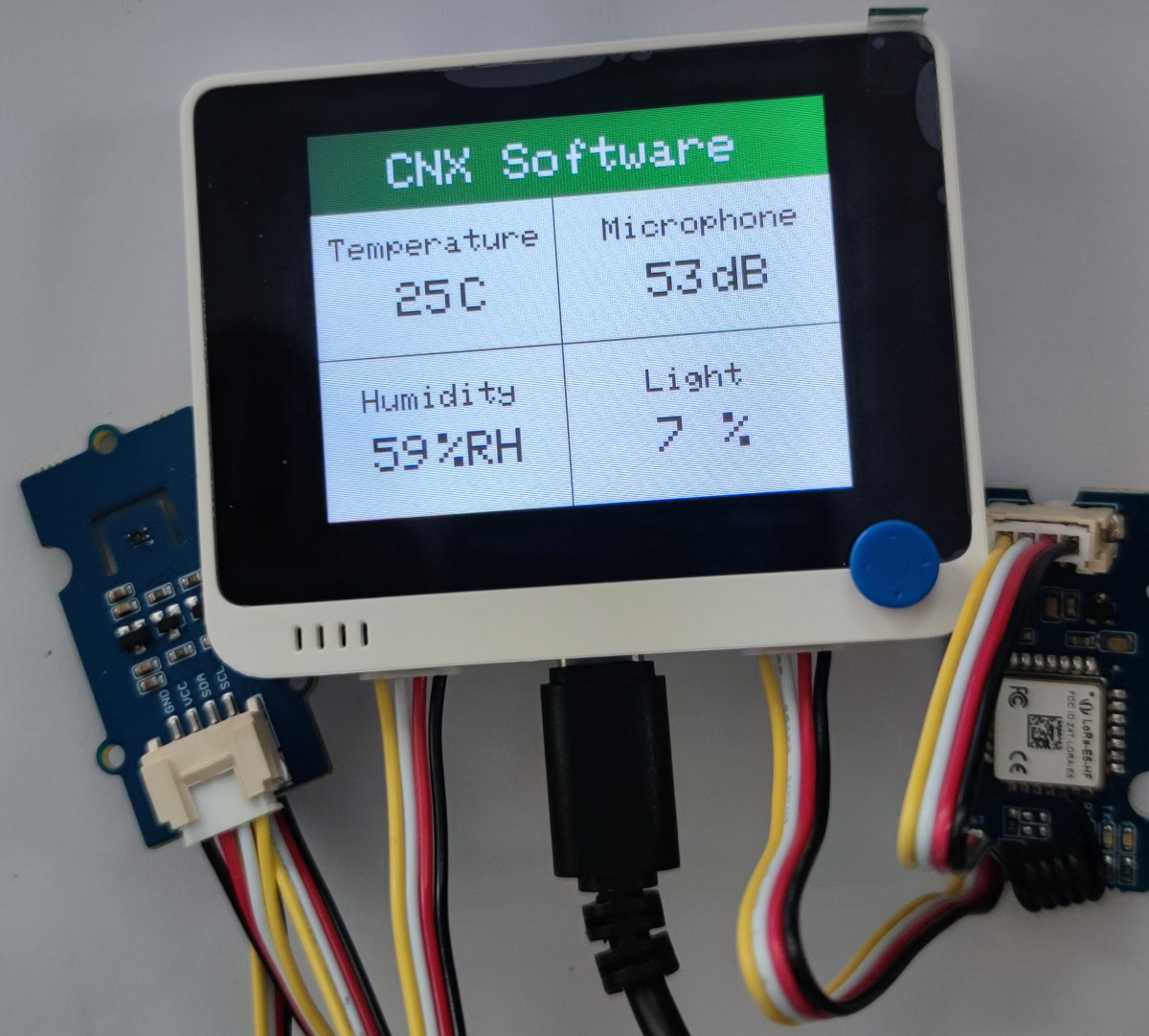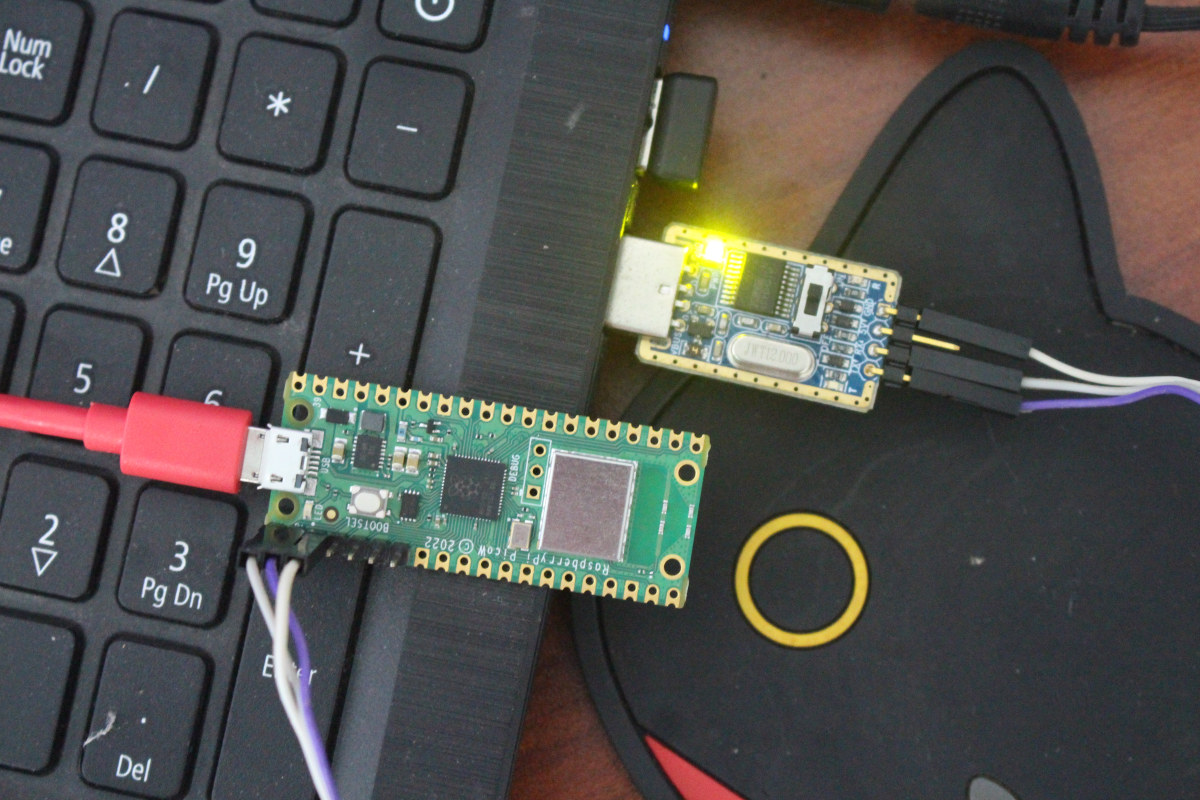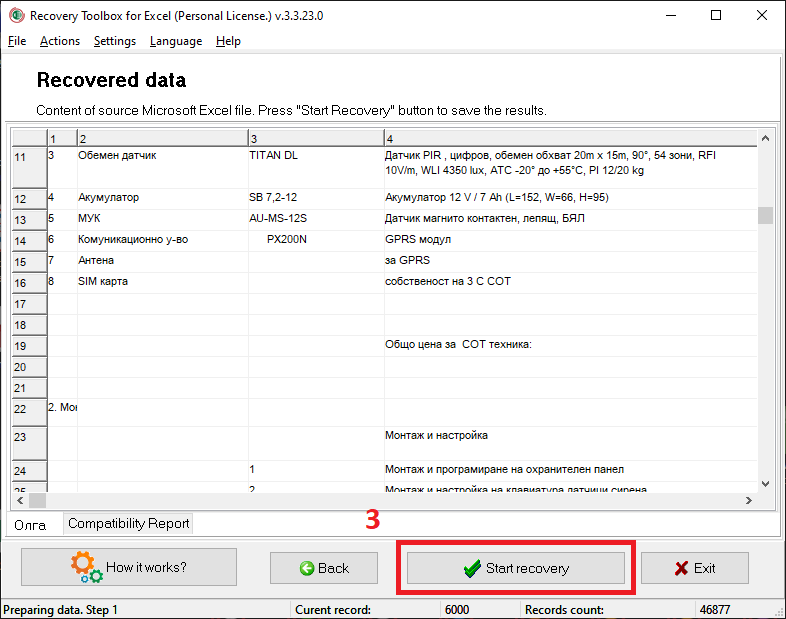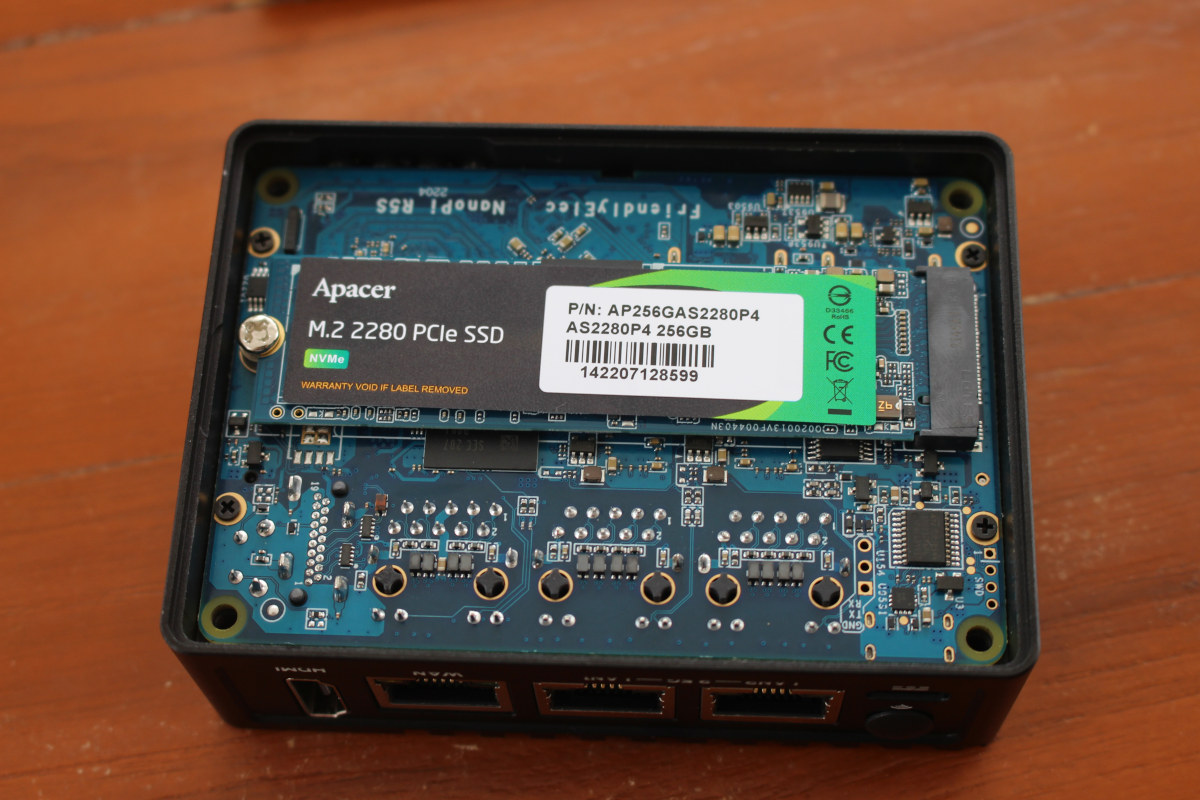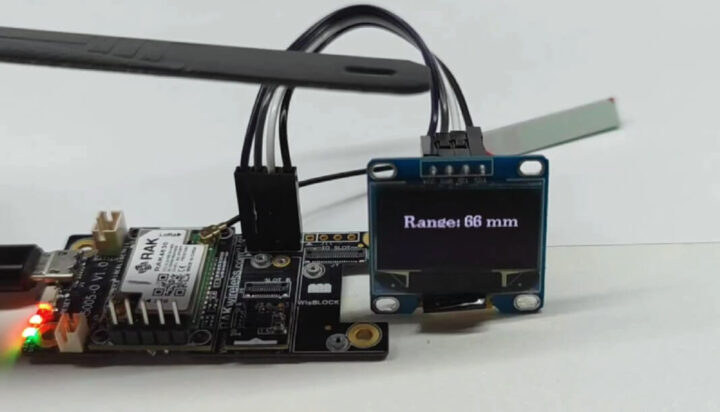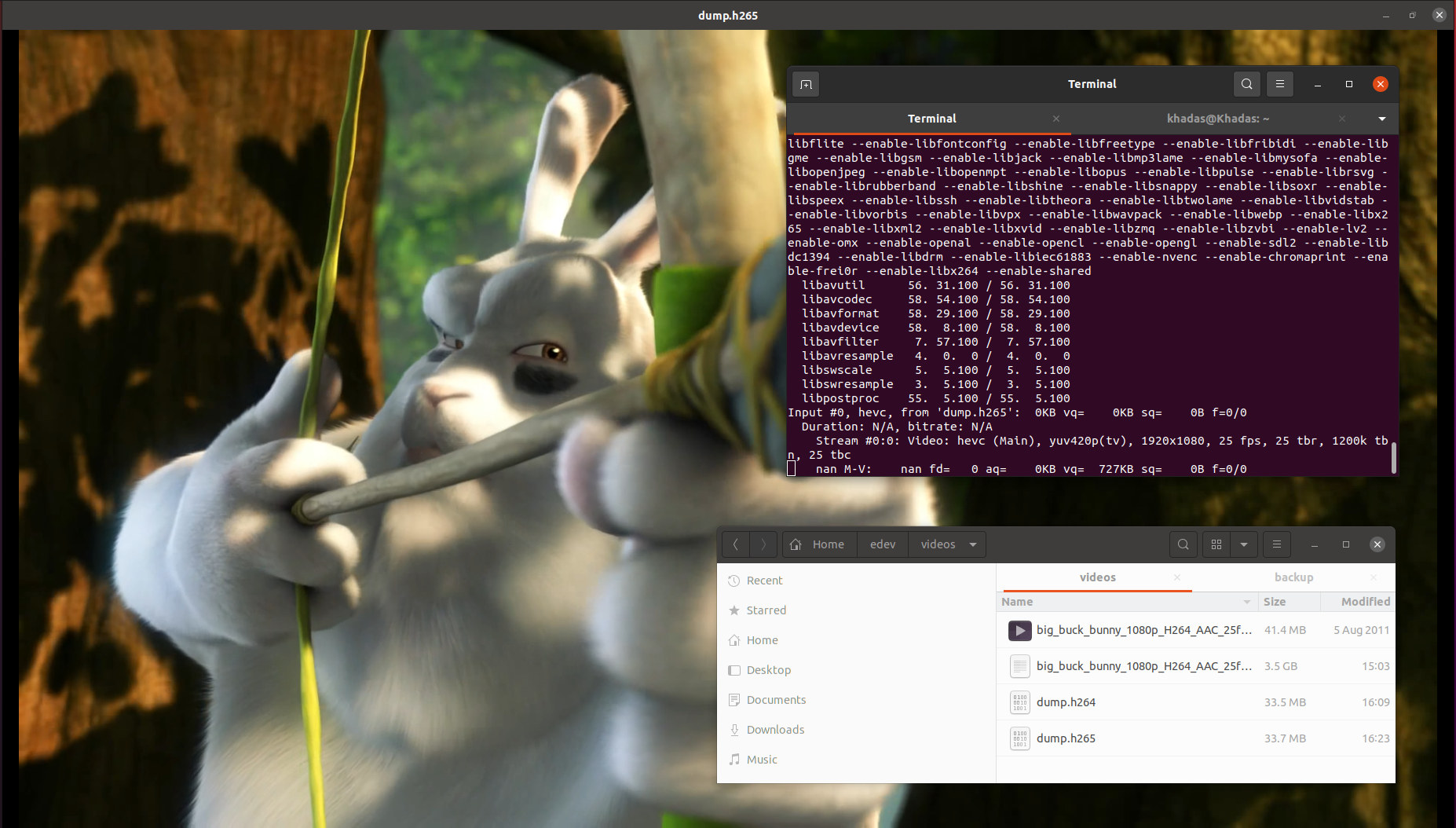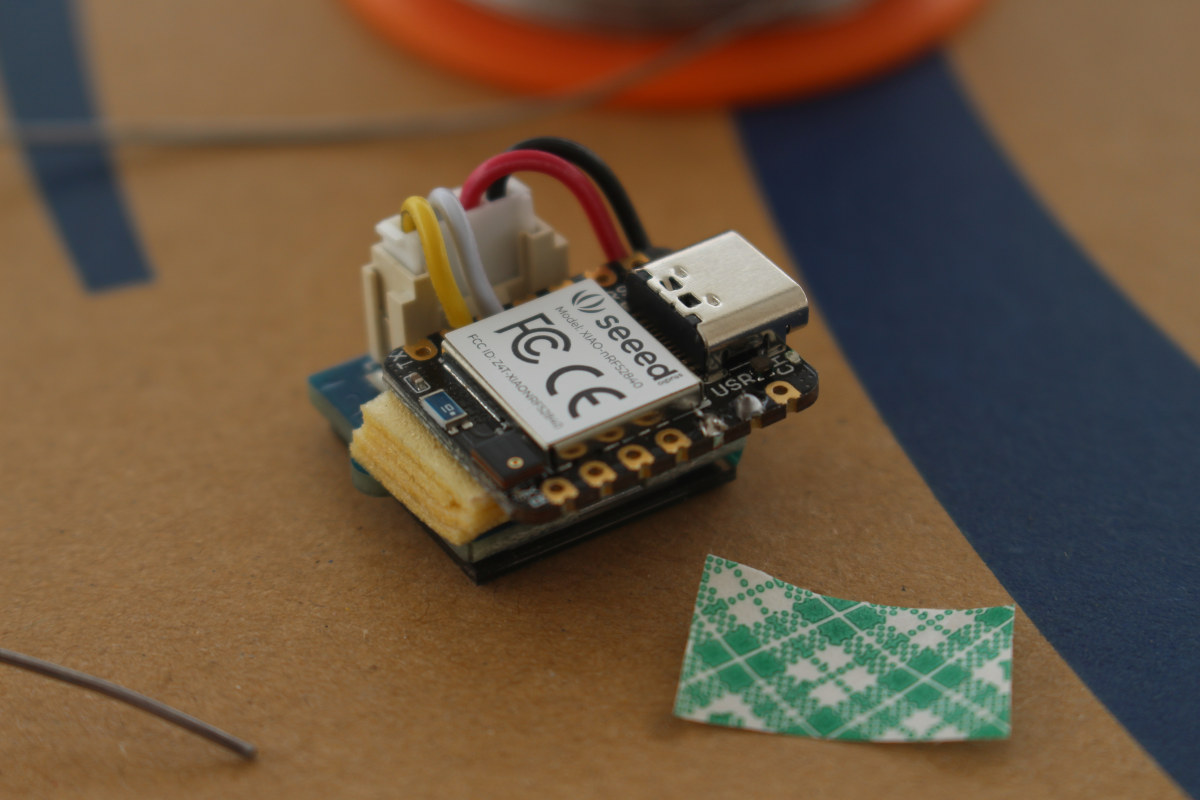Hey Karl here. The first thing I need to do is thank the manufacturer of the brand Ace Magician for sending over a unit of their AMR5 gaming mini PC to more or less play with. I did a tiny bit of benchmarking along the way. This is the last time you will see the system in this state 😀 Story time. I have been really wanting a Steam Deck. But we purchased a Nintendo Switch about a year ago and it has barely been used. As soon as my son picked it up he asked why it was so laggy and has shown very little interest in it. So that got me worried about purchasing essentially a one-trick device. There have been a couple of good attempts at a DIY Steam Deck and I wanted to experiment with a small form factor. I went into this with a general […]
Getting Started with LoRaWAN on SenseCAP K1100 sensor prototype kit (Part 1)
CNXSoft: This getting started guide/review of the SenseCAP K1100 sensor prototype kit is a translation of the original post on CNX Software Thai. The first part of this tutorial describes the kit and shows how to program it with Arduino to get sensor data to a LoRAWAN gateway and display it on Wio Terminal, before processing the data in a private LoRaWAN network using open-source tools such as Grafana. The second part – to be published later – will demonstrate the AI capability of the kit. In the digital era where IoT and big data are more prevalent, a large amount of data is required to be collected through sensors. To enable the digital transformation, SeeedStudio’s SenseCAP K1100 comes with all necessary sensors and equipment including the Wio Terminal, AI Vision Sensor, and a LoRaWAN module. With this plug-and-play platform, makers can easily create DIY sensors for data collection and […]
Getting started with WiFi on Raspberry Pi Pico W board
Raspberry Pi Trading announced the Raspberry Pi Pico W board basically based on the same design as the original Raspberry Pi Pico board with RP2040 dual-core Cortex-M0+ microcontroller but adding a wireless module with WiFi 4 and Bluetooth LE 5.2, although the latter is not enabled on the board at this time. The company sent me a sample for review/evaluation, and I’ll focus on the WiFi part since the Raspberry Pi Pico W supports the same MicroPython and C/C++ SDKs as for the Raspberry Pi Pico board plus additional APIs for wireless connectivity. Raspberry Pi Pico W unboxing The board I received was cut from a 480-unit reel, and I also got a one-meter long micro USB to USB cable, which should probably not be included by default for people ordering the $6 board. Just like its predecessor, the board is tiny, and The pinout is the same as the […]
How to repair a corrupted excel file in Microsoft Office 2007 and 2010 (Sponsored)
Microsoft Excel comes with an already built-in repair tool called Open and Repair… The major and only task of the Recovery Toolbox for Excel is to fix and recover corrupted Excel files like the Open and Repair… function in Office 2007/2010. How To Manually Repair Microsoft Excel 2010 Files Here’s a well-detailed method on how to open and repair your Excel 2010 file: Select the file in the main menu Click on open Search for the damaged Excel 2010 file in the dialog section Click on the arrow beside the open button and select open and repair in the dropdown. Click on the Repair button to restore all the data. Wait for it to get restored. Perhaps the algorithm wasn’t able to get the damaged file fixed; click on extract data and formulae. The Excel file algorithm encourages you as a user to ‘convert to value’ or ‘Recover Formulas.’ If […]
NanoPi R5S preview – Part 2: Ubuntu 20.04 (FriendlyCore)
I started the NanoPi R5S review with an unboxing, a teardown, a quick try of the pre-installed OpenWrt-based FriendlyWrt, and some iperf3 benchmarks on the 2.5GbE interfaces that were rather disappointing. I test further I switched to the Ubuntu 20.04-based FriendlyCore image since I’m more familiar with Debian-based operating systems, and some tools will not run on OpenWrt. Note the performance is still not quite optimal, and that’s why I call this a preview since numbers should improve in the next few months as more people tweak the software. OpenWrt optimizations? But before jumping to Ubuntu, I gave an updated version of FriendlyWrt a try as FriendElec told me they had added some optimizations: We have made some optimizations on the new image, such as NIC interrupt settings, and offload support… So I downloaded “rk3568-eflasher-friendlywrt-20220526.img.gz” found on Google Drive, flashed it to a microSD card with USBImager, and booted it […]
How to use a ToF laser ranging sensor with Arduino and Wisblock
Laser ranging has many applications in production and life, such as ranging, positioning, obstacle avoidance, and so on. Time-of-Flight (ToF) ranging, as a type of laser ranging technology, is often used for real-time object detection in robots, autonomous vehicles, and traffic management because of its accuracy, fast response, and low power consumption. The face detection function of mobile phones also uses this technology. This article will introduce the WisBlock RAK12014 ToF laser ranging sensor module, and use the WisBlock development board to demonstrate how the module works. What is a ToF laser ranging sensor module? A ToF laser ranging sensor module uses laser pulses to measure the distance between itself and a target object. The WisBlock RAK12014 ToF laser ranging sensor module is based on STMicro VL53L0X, the smallest ToF ranging sensor in the world. The WisBlock RAK12014 provides accurate distance measurement and can measure distances up to 2 meters. […]
Linux hardware video encoding on Amlogic A311D2 processor
I’ve spent a bit more time with Ubuntu 22.04 on Khadas VIM4 Amogic A311D2 SBC, and while the performance is generally good features like 3D graphics acceleration and hardware video decoding are missing. But I was pleased to see a Linux hardware video encoding section in the Wiki, as it’s not something we often see supported early on. So I’ve given it a try… First, we need to make a video in NV12 pixel format that’s commonly outputted from cameras. I downloaded a 45-second 1080p H.264 sample video from Linaro, and converted it with ffmpeg:
|
1 |
ffmpeg -i big_buck_bunny_1080p_H264_AAC_25fps_7200K.MP4 -pix_fmt nv12 big_buck_bunny_1080p_H264_AAC_25fps_7200K-nv12.yuv |
I did this on my laptop. As a raw video, it’s pretty big with 3.3GB of storage used for a 45-second video:
|
1 2 3 4 |
ls -lh total 3.3G -rw-rw-r-- 1 jaufranc jaufranc 40M Aug 5 2011 big_buck_bunny_1080p_H264_AAC_25fps_7200K.MP4 -rw-rw-r-- 1 jaufranc jaufranc 3.3G May 21 15:03 big_buck_bunny_1080p_H264_AAC_25fps_7200K-nv12.yuv |
Now let’s try to encode the video to H.264 on Khadas VIM4 board using aml_enc_test hardware video encoding sample:
|
1 2 3 4 5 6 7 8 9 10 11 12 13 14 15 16 17 18 19 20 21 22 23 24 25 26 27 28 29 30 |
khadas@Khadas:~$ time aml_enc_test 1080p.nv12 dump.h264 1920 1080 30 25 6000000 1125 1 0 2 4 src_url is : 1080p.nv12 ; out_url is : dump.h264 ; width is : 1920 ; height is : 1080 ; gop is : 30 ; frmrate is : 25 ; bitrate is : 6000000 ; frm_num is : 1125 ; fmt is : 1 ; buf_type is : 0 ; num_planes is : 2 ; codec is : 4 ; codec is H264 Set log level to 4 [initEncParams:177] enc_feature_opts is 0x0 , GopPresetis 0x0 [SetupEncoderOpenParam:513] GopPreset GOP format (2) period 30 LongTermRef 0 [vdi_sys_sync_inst_param:618] [VDI] fail to deliver sync instance param inst_idx=0 [AML_MultiEncInitialize:1378] VPU instance param sync with open param failed [SetSequenceInfo:979] Required buffer fb_num=3, src_num=1, actual src=3 1920x1080 Encode End!width:1920 real 0m26.074s user 0m1.832s sys 0m4.883s |
The output explains the parameters used. There are some error messages, […]
Trying out Edge Impulse machine learning platform on XIAO BLE Sense board
I had seen the Edge Impulse development platform for machine learning on edge devices being used by several boards, but I hadn’t had an opportunity to try it out so far. So when Seeed Studio asked me whether I’d be interested to test the nRF52840-powered XIAO BLE Sense board, I thought it might be a good idea to review it with Edge Impulse as I had seen a motion/gesture recognition demo on the board. It was quite a challenge as it took me four months to complete the review from the time Seeed Studio first contacted me, mostly due to poor communications from DHL causing the first boards to go to customs’ heaven, then wasting time with some of the worse instructions I had seen in a long time (now fixed), and other reviews getting in the way. But I finally managed to get it working (sort of), so let’s […]


